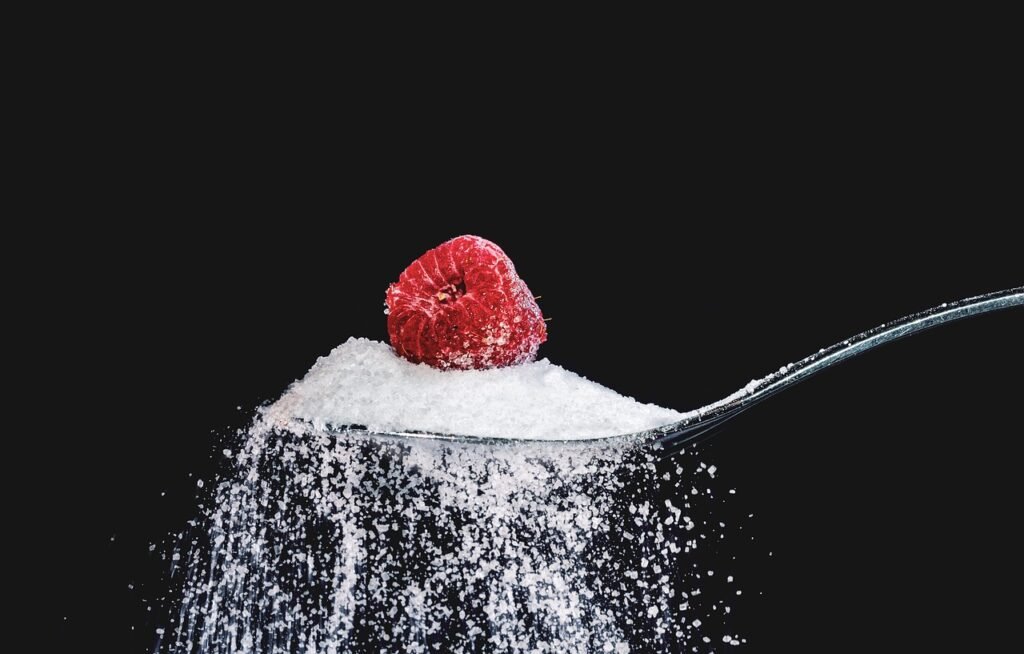Sugar alcohols are becoming more and more popular sugar substitutes in many “sugar-free” or “low-sugar” products such as cookies, candies, ice cream, beverages, and even chewing gum. But what actually are sugar alcohols? Are they a healthier choice than regular sugar or calorically appealing sweeteners?
These are worthwhile things to look for if you are trying to cut back on added sugars for good reason-to help fend off obesity, diabetes, and heart disease. In fact, while reading nutrition labels, you might find some entries for sugar alcohols. But first, you should understand what sugar alcohols are and if they can really be good for you.

Sugar Alcohols:
Sugar alcohols are often thought to be sugar or alcohol but are neither. They are a type of carbohydrate that occurs naturally in certain fruits and vegetables. Most of the industrially used sugar alcohols, in contrast, are obtained by chemical processes. They are often used to sweeten foods and drinks without providing many calories or elevating blood sugar levels like conventional sugar.
That makes it easy to spot sugar alcohols in the ingredient listings because many of them end with the suffix “-ol”. For example: sorbitol, xylitol, erythritol, maltitol, mannitol. These names may not be as familiar to you, but they are commonly used in various sugar-free and reduced-calorie products.
Is Sugar Alcohol Actually Healthier Than Sugar/Other Sweeteners?
People often consider sugar alcohols to cut down their calories or in order to avoid blood sugar spikes that happen due to the consumption of ordinary sugar. But are they a better option? Let’s get into it and assess the positive and negative sides.
The Benefit of Sugar Alcohol
Among other things, the biggest plus for sugar alcohols is that they are not as sweet as artificial sweeteners like aspartame and sucralose, yet they impart some sweetness quite satisfying to the palate minus the wdZ in calorie. Basically, sugar alcohol puts about 25-75% fewer calories as compared to sugar, meaning sugar alcohols are about 40% to 80% as sweet as regular sugar, whereas artificial sweeteners can range from hundreds to thousands of times sweeter.
More sugar-alcohol benefits include 2 which means they are absorbed slowly in the intestine than the sugar, and due to this, sugar alcohol has a negligible effect on blood sugar and insulin levels. Therefore, sugar alcohol may be a better option for the diabetic population who want to maintain or stabilize their blood sugar levels because they do not give such high peaks in blood glucose like regular sugar does.
Some harmful ways in which sugar alcohols function are studied as remedies. The biggest minus is that excess sugar alcohols may cause GI distress or discomfort such as bloating, gas, abdominal pain, and diarrhea.
Sugar alcohols, being slowly absorbed, give more time for gut bacteria to ferment them, therefore releasing gas. These sugar alcohols also tend to osmotically pull fluids into the colon, giving rise to their laxative effect. These effects can pose a challenge for a person with a sensitive digestive system.
The intensity of these GI problems also depends on certain personal factors: weight, health; different types of sugar alcohols could create different symptoms. For example, sorbitol is so notorious for causing GI distress, while erythritol is often well tolerated.
Since each sugar alcohol has its own tolerance level, you should introduce it gradually to your diet and ascertain how your body responds. If you ever feel GI discomfort, you may want to cut down on your intake of sugar alcohols or choose products with alternative sugar alcohols to ease your symptoms.
Possible Long-Term Health Risks
Even though sugar alcohols are definitely a better bet than sugar-calorie-wise and glycemically speaking, a lot about their long-term health impacts is anybody’s guess. One sugar alcohol that has found some concern in the 2023 study was erythritol, described as probably one of the more popularly used sugar alcohols. The investigators got a link of erythritol consumption with an increased risk of cardiovascular events such as strokes and heart attacks, particularly in cases with pre-existing heart disease or risk factors such as diabetes and high blood pressure.
But they were not infallible, and much remains to be done before any definitive conclusion can be drawn regarding the possible long-term health risks posed by erythritol and possibly by other sugar alcohols. As of the moment, moderation, as understood by many, for instance by Frank Hu, an expert in nutrition and epidemiology at the Harvard T.H. Chan School of Public Health, should rule the day.” Sugar alcohols can be said to be a sugar substitute with some advantages, but disadvantages can work against you as well, especially when you are dealing with those with sensitive gastrointestinal tracts,” he says.
Sugar Alcohols: Are They Right for You?
Sugar alcohols are a practical solution to those trying to cut back on added sugar or control for blood sugar levels. Lower in calories than sugar and having a smaller impact on blood glucose, they are indeed an attractive choice for those with diabetes or for all those trying to watch their weight.
But like everything else, sugar alcohols must be taken with caution. A sugar alcohol is better than a normal sugar, but it is still sugar in calories and glycemic index scores, so it may prove uncomfortable for some people when taken in excess. Gradually replace traditional sugars with sugar alcohols and observe for how your body reacts. Keep an eye for signs indicating distress in digestive health.
Hoping you noticed this for yourself, but if anything, sugar alcohols might appear paradoxical or indeed very vicious with their long-term effects, it might be better to consult a personal physician or nutritionist who will help make the better decision.
Bottom Line
Sugar alcohols are alternatives to sugar and artificial sweeteners that cut calories and glycemic response in many cases. But they also have their downside: in large amounts they cause gastrointestinal problems. Like any other change in the food habits, doubts should be cleared by practicing moderation.
A healthy diet is balanced and makes smart food choices. Whether you opt for sugar alcohols, other sweeteners, or natural sugar in moderation, the goal should always be to maintain a healthy, well-rounded eating pattern that supports your long-term health.
